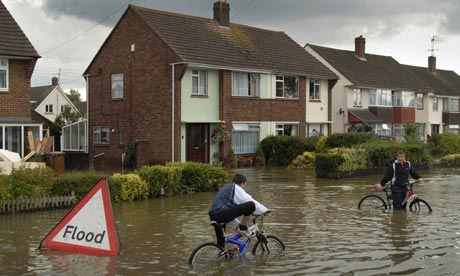"My experiences are rather different from those of the women you have interviewed in the banking and fund management sectors."
We
meet for lunch in the City. She is English, a woman in her mid-20s,
well dressed and with two postgraduate degrees on her CV. For lunch she
orders a glass of Peroni beer and crostinis with tuna.
"Maybe
the insurance industry is simply more backward, and this is why my
experiences in finance are so different. From your interviews the world
of banking seemed almost enlightened. Insurance is very much an old
boys' network, particularly so on the broking side, and women are not
well-treated. I have become quite thick-skinned, but still I find the
industry shocking at times. I have been in several incidents of physical
and verbal harassment. The thing is, you can't go public with it,
because people talk. They'll say, 'she's the girl who sued so-and-so'
and it will affect your career. This is a male-dominated industry, and
people will be wary of you if you rock the boat. There will be certain
things you are no longer asked to do, you get shut out of the circle. So
women tend to brush it off, move on. This is what I did. I mean, I
don't want you to think that I'm hugely traumatised or anything like
that. One incident was with a senior colleague, one with a director and
one with a client. The internal ones were sorted out, internally, but
that's where it ended. Our business is all about relationships, and
these would be destroyed by a lawsuit. As a woman you don't get the same
protection as you do in banking, and so there's less fear among men,
they think they're untouchable. Now of course not everybody in insurance
harasses women. But those who do are tolerated. One of the incidents
was with a man who was 60 years old. You know, I am in my mid-20s. What
sort of deluded self-perception must he have to think that I would be
attracted to him?
"Coping mechanisms for women in insurance? Let
me think. One way is to become one of the boys, put away any
sensitivity, ignore the appalling language. You gotta ditch your
girliness, basically become unshockable. Drink with the guys, even go to
strip clubs together. In my first year on the job, I went with the guys
a couple of times. I'm not particularly against strip clubs, though I
don't necessarily think they're healthy for the women involved. But what
happens to men, some men, in those clubs … they become animals. The
language they use to these women, they touch them even when that's not
allowed. The way they speak about these 'strippers' is so degrading.
It's disturbing to sit there and listen to all that.
"It's just
hard to draw the line. You must not be seen to be a prude, yet by
becoming too involved with the drinking and socialising, the signal you
send is that you're available. Which you must take very great care not
to be. If one of the lads sleeps with a girl in the market, his
reputation actually improves. Hers is destroyed – such a thing will just
whizz through the firm. Everybody in the office will laugh about it.
It's just like school, really.
"My job. I am an intermediary
between clients and insurance underwriters. Perhaps a good example is to
think of a real estate agent – we bring buyers and sellers together.
There are many categories of business, for example marine and property.
So on the one hand there may be a ship owner who wants to insure his
ship against a range of risks. On the other there are insurance
underwriters, who take on those risks in exchange for a premium. It's
the same principle as any day-to-day insurance, except here the contract
is not standard; it is negotiated between shipper and insurer to form a
bespoke policy, with the broker as intermediary conducting the
negotiation. When a deal is done and the client pays the insurance
underwriter, via the broker, we take our commission from that, or in
some cases a pre-arranged fee, and this pays for our salaries.
"What
happens, you inherit clients from your predecessor, and then you try to
grow your portfolio. You go out and talk to potential clients. Success
comes from knowing the industry and its technicalities and dynamics
well, and it's also relationships – people must like you. So you take
clients and potential clients out for drinks, and this way you build a
book of business for yourself. As for technicalities … as a broker you
can simply take the easy route, and pass information back and forth
between the insurance buyer and insurance underwriter. But if you know
the industry and business well, you can add value by offering advice to
specifically tailor the contract to a client's needs. Then you are
effectively using legal contract analysis skills, pointing out
alternative phrasings or clauses that may solve a particular problem.
Finally your business can grow in the reciprocal way. For example, a law
firm may appoint you to arrange their insurances, in exchange for which
you will instruct them when you're in need of certain legal expertise.
"Typical
working days are not long, that's great, as you retain a healthy
work/life balance. We start around 9am, and we'll generally be out by 5.
There may be client entertainment, but the actual work is over. It's
very different from brokerage of stocks, for instance, as stocks are
actually traded on a stock market. We don't have to watch trends or
constantly follow a market. What I also like about my job; I am not
sitting at a desk all day crunching numbers. I get to go out, meet
people. And some of the people around are fantastic. It is really
inspiring to be around professionals who are so passionate about the
industry; I know that sounds weird, passionate about insurance, but they
are and it's wonderful to learn from them.
"This job does alter
your perception of men. God, that makes me sound horrible. But it's
true. So many men who I have to spend time with just have no maturity,
no decency. I have to stop myself from tarring all men with that brush. I
find myself lowering my expectations of men. Listen to me, ah well. You
should see them getting drunk around lunch, not returning to the office
afterwards. This is how the worst incident I was in occurred,
incidentally. You see, harassment happens when you least expect it. It
didn't happen late at night in a bar. It happened during working hours
when I was contacted by this person in the afternoon, to ask if I would
meet with him and others. Seemed perfectly innocent, and not unusual as
we have worked on several cases together. Turns out he had been
drinking, and then it happened. It was a complete surprise. It did take
me time to recover, and our human recourses department was very good
about it. I stayed home for a couple of weeks, in which I took the time
out to re-evaluate my career going forward. Since I decided not to go
public with what happened, I had to invent reasons for my absence;
holidays, that sort of thing.
"City workers are the new
footballers. On Thursday nights there are these droves of women who
flock to the bars where City workers go, to try to pick one up. It's a
bizarre thing to look at. I suppose men will come away with a distorted
sense of women too, going to these bars. I don't go to City bars very
often, but when I do, I don't adapt my clothes in order to make sure
people in the industry understand that I'm not a gold-digger – I have no
reason to. You can tell the difference between the 'City girls' and the
girls on the hunt for a 'suit'. I do dress in a feminine way, and my
daily uniform does include high heels and makeup. Clients respond to a
well-groomed or presented professional, so why not cash in on that? Now I
can hear people thinking, if you are going to 'dress up', then don't
moan when men come on to you. So what do I do? Be anti-feminine, and
endure the lesbian jokes? You just can't win, can you?
"This job
is not for life, ha-ha, no way. I have been studying so much in
university, and then I never use my brain any more. I thought going to
work in the City was all glamorous and exciting, and I would be making a
fortune. Well, I make well under £40,000, and often I sit back and
think: God, this is my job. I just had no idea it was like this, it sure
wasn't in the graduate prospectus. I want to stay in the City but move
to a different area in finance. The City life and its mystique is great,
the iconic buildings and all. The pay is still comparatively good in my
sector, and you can meet intelligent and dynamic people. When I get up
and go to work there's this buzz, you feel this is where things are
happening. I really, really like that."

